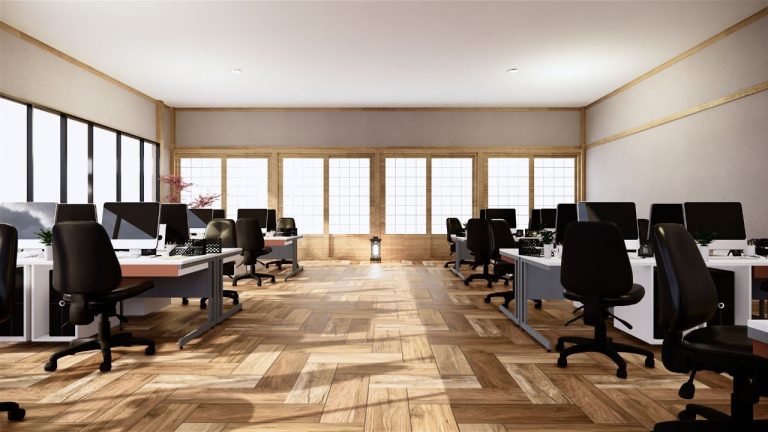How to Negotiate a Property Lease Like A Pro
The elements of a commercial lease transaction can be numerous and diverse. Your ability as the agent to capture and negotiate critical elements will determine the success of a lease transaction.
Where can you start your negotiation process? The client (typically the landlord) and the tenant will look at the transaction from different viewpoints. Your job is to match and negotiate the lease requirements.

Setting Negotiation Facts
Here are some ways to handle the negotiation of the lease.
1. Clarify Client Requirements
Always start the lease approach with the premises. Get your client’s instructions on the lease terms and rental targets.
Every property is unique, and the services and amenities will impact the property. How does the property compare to others of similar size or type?
You may need to ‘condition’ the client to the current property market factors and how they may affect the proposed premises lease.
2. Consider Market Conditions and Rent
Set your rental goals based on the client’s instructions and the local real estate market. What is the market rent for this type of property? How will this affect the lease transaction you’re about to enter?
Prospective tenants will be aware of the rents and market conditions in the property market. It is common for landlords to be overly optimistic about rental rates. Collect some leasing evidence to use in the lease transaction and to show the landlord.
What you want here is a rental range that will allow you some ‘flexibility’ in getting the lease negotiation started. If the starting rent is too high, the negotiation may not even begin.
3. Set Lease Alternatives
In any lease negotiation, there are always alternatives. Be willing to shape the tenant’s lease offer to assist your landlord client in obtaining the lease result they require.
Every lease is an opportunity for investment improvement. Consider factors of lease benefit.
A better rent review, longer lease terms, outgoings recovery, or fit-out negotiations could all be part of a tenant’s lease offer compromise.
4. Tune Your Target Market Approach
Set a target market for the property’s tenants. Compare the local leasing market, nearby vacancies, and achieved rents based on available space.
Pinpoint a specific target market. That will help your marketing campaign become more effective, and your results are more likely to align with what you want.
Property improvements, rental levels, location, and lease terms and conditions will be prioritised in each target market.
Its all about who wants the property and how you can tune the vacancy to that. Match a tenant to the vacant premises. Negotiate a favourable lease outcome for your client, the landlord.

5. Prepare the Site for Inspection
Your client’s instructions must be fully understood for the negotiations to proceed promptly and professionally.
Prepare the site for inspection. The property and the vacancy should be in good condition for any inspection results to be optimised and negotiations to begin.
Nothing is more ‘off-putting’ in a property inspection where a tenant discovers damaged areas of the property.
Look for the premises problems. Remove any visual impediments or presentation barriers.
Property repairs and maintenance should be be completed early. Do that before you commence marketing the vacancy.
The property’s condition and the tenancy will be critical to the results you seek from each inspection. Tenants want to see the property from their perspective regarding quality, long-term occupancy, and ongoing usage.
Working with that focus means having the premises painted and cleaned throughout and any fit-out or design modifications ready for inspection.
6. Where Can You Find Tenants?
There will most likely be a few places where you can find prospective tenants for the property. To begin, think ‘local’ and approach other local businesses.
Local businesses will likely remain ‘local’ as they seek to relocate or upgrade their facilities. Speaking with local business owners will help the momentum of vacancy marketing. Second, consider the surrounding area of property activity in your town or city.
Is your vacancy more ‘attractive’ to local people or the businesses from other areas or precincts?
Who should lease the premises? You have two marketing levels to concentrate on; they are either locally or regionally. Your campaign approaches should be designed with both ‘channels’ of enquiry in mind.
To start the campaign, consider using the internet, social media, direct calling, telephone marketing, and email or brochure marketing.
7. Use the Standard Lease
Prepare your standard lease in advance of any property negotiations. Most experienced tenants will want to review the general lease terms. Prepare for that by having your documents ready.
If qualified inspecting parties appear ready to move to the next level of discussions, the standard lease can be ready to supply.
Some standard lease provisions can be discussed with the landlord early in the property promotion. What are the bigger concerns? These factors may include rent levels, outgoings recovery, rent review types, lease incentives on offer, option lease terms, and permitted use of the premises.
These are the fundamental components of any commercial property lease negotiation; establish them early in the marketing process.
8. Marketing Funds Paid
Marketing funds should be appropriate for the type and quality of property. You have a property promotion to fund. Ask for the money from the landlord client.
Create more enquiries; they can be optimised. You can do that with the promotional campaigns you design for the property. Tune your marketing in that way. Be aware of the targeted tenant types, and the current market conditions.

Improving Every Lease Negotiation
Leasing and negotiating a lease for a commercial property vacancy can be continuously optimised.
Tenants and landlords are constantly on the move for reasons that can only be determined through phone prospecting and cold calling.
What is the base strategy? Talk to many tenants and landlords daily, and you’ll notice that property enquiries are always possible. This allows you to lease more space.







